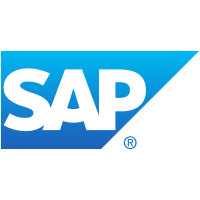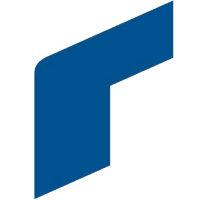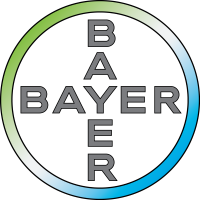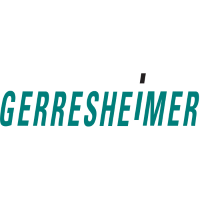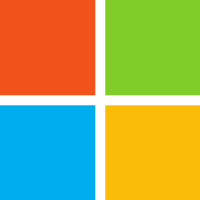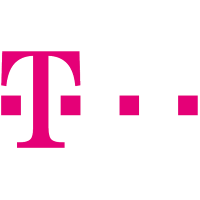Osiris Therapeutics, Inc. (NASDAQ:OSIR) announced today that PROCHYMAL(TM) has received Fast Track designation from the U.S. Food and Drug Administration, expediting the development of the stem cell treatment for Crohn's Disease that does not respond to standard therapies. Additionally, Osiris has received clearance to conduct a Phase III clinical trial using PROCHYMAL to treat this resistant form of Crohn's Disease. The Phase III program was developed in consultation with FDA, and if successful, will be the last phase of testing before the company seeks full approval for Crohn's Disease.
Osiris recently reported positive clinical trial results evaluating PROCHYMAL for treatment resistant Crohn's Disease and Graft versus Host Disease, or GVHD. In a Phase II study of PROCHYMAL for the treatment of patients with moderate to severe Crohn's Disease who had failed to respond to standard therapies, every patient evaluated experienced a reduction in Crohn's Disease Activity Index or CDAI, signifying a reduction in the disease severity. There was a statistically significant decrease in average CDAI scores of 105 points from 341 to 236 by day 28 (p=0.004). In a Phase II study of PROCHYMAL for the treatment of acute GVHD, 94% of evaluable patients responded after receiving two infusions of PROCHYMAL. The study found that patients were twice as likely to have total clinical resolution of their disease when PROCHYMAL was added to steroid therapy, compared to reported results for steroids alone.
Crohn's Disease is the second indication for which Osiris has obtained Fast Track status and has advanced into Phase III trials. Osiris was the first company to receive Fast Track status for a ready to use stem cell treatment, when in 2005, FDA granted PROCHYMAL Fast Track status for the treatment of GVHD. Since receiving Fast Track, Osiris has advanced the product through Phase II testing and is currently enrolling patients in a Phase III trial for resistant GVHD.
"PROCHYMAL's unique mechanism of action may represent a new class of anti-inflammatory agent," said Jane Onken, M.D., Director of the Inflammatory Bowel Disease Clinic and Associate Professor of Medicine at the Duke University School of Medicine. "Laboratory data indicate that the stem cells in PROCHYMAL respond according to the level of inflammation present. When there are higher concentrations of inflammatory signals, the cells produce a stronger anti-inflammatory effect. When there is no inflammation, the anti-inflammatory effect is turned off. It is our hope that this proportional response will lead to a treatment that avoids many of the dangerous side effects associated with systemic immunosuppressive therapy and provide us with a safer alternative for treating patients with serious inflammatory diseases."
FDA established Fast Track to facilitate the development and accelerate the pre-market review of treatments for serious and life-threatening conditions, so that these products can reach approval more rapidly. To receive Fast Track designation, the product must address a serious unmet medical condition, and be supported by strong results from preclinical or clinical testing demonstrating the product potential. FDA reached their decision to grant Osiris Fast Track for treatment resistant Crohn's Disease after reviewing the accumulation of clinical trial data submitted by the Company, along with a detailed plan for the Phase III evaluation of the drug.
"We are very pleased with the tremendous progress that the entire PROCHYMAL team has made over the past two years," said C. Randal Mills, Ph.D., President and CEO. "Moving the program into Phase III and receiving Fast Track status are key components in our plan to expand the market applicability of this exciting stem cell technology as quickly as possible. Our vision is to leverage the unique properties of stem cells and create a new treatment paradigm, applicable to a broad spectrum of inflammatory disease."
Crohn's Disease is a life-long, chronic inflammatory disease of the intestines, often leading to abdominal pain, disability, and surgical removal of the affected portion of the bowel in more than half of patients with the disease. Crohn's Disease affects over 500,000 patients in the US, with more than 20,000 new cases diagnosed each year. It most often begins between ages 15 and 35, although it can start at any age.
The Phase III program for Crohn's Disease will consist of two double-blind, placebo-controlled trials. As was the case with Phase II, the new trials will evaluate patients with Crohn's Disease who are intolerant or unresponsive to standard treatments including steroids, immunosuppressants, and anti-TNF treatments like Remicade(R). The primary endpoint is the induction of disease remission 28 days after treatment. Patients will have an equal chance of receiving either a high dose of PROCHYMAL, a low dose of PROCHYMAL, or a placebo. Initially, up to 258 subjects are scheduled to be enrolled in each trial. Patients that respond to treatment will be eligible for re-treatment under a separate study protocol.
PROCHYMAL is a preparation of mesenchymal stem cells specially formulated for intravenous infusion. The stem cells are obtained from the bone marrow of healthy adult donors. PROCHYMAL is currently being evaluated in a double-blind, placebo controlled Phase III study for the treatment of GVHD. The ongoing Phase III study for GVHD is anticipated to be the final trial before the product is submitted to FDA, Canadian and European regulatory agencies for full approval. PROCHYMAL has been granted both Fast Track and Orphan Drug status by FDA for GVHD. Orphan Drug designation provides incentives to companies that develop drugs for underserved patient populations.
GVHD and Crohn's Disease are cell-mediated inflammatory processes that result in high levels of pro-inflammatory chemical signals called cytokines. These cytokines cause the unbalanced activation of certain immune cells that result in tissue damage. Delivered intravenously, PROCHYMAL is able to target areas of active inflammation. Laboratory data indicate that PROCHYMAL is able to down-regulate the production of pro-inflammatory cytokines, including tumor necrosis factor-alpha or TNF-alpha and interferon-gamma. It is believed that the way PROCHYMAL is able to change the course of inflammatory disease is by altering the cytokine secretion profile of the dendritic and T-cell subsets, thereby resulting in a shift from a pro-inflammatory to an anti-inflammatory state and arresting disease progression. Furthermore, it is believed that PROCHYMAL facilitates the repair of previously damaged tissue through the secretion of growth factors that promote tissue regeneration and block programmed cell death or apoptosis.
About Osiris Therapeutics
Osiris Therapeutics, Inc. is a leading stem cell therapeutic company focused on developing and marketing products to treat medical conditions in the inflammatory, orthopedic and cardiovascular areas. Osiris currently markets and sells Osteocel(R) for regenerating bone in orthopedic indications. Prochymal(TM) is in Phase III clinical trials and is the only stem cell therapeutic currently designated by FDA as both an Orphan Drug and Fast Track product. The Company's pipeline of internally developed biologic drug candidates under evaluation also includes Chondrogen(TM) for regenerating cartilage in the knee, and Provacel(TM), for repairing heart tissue following a heart attack. Osiris is a fully integrated company, having developed stem cell capabilities in research and development, manufacturing, marketing and distribution. Osiris has developed an extensive intellectual property portfolio to protect the company's technology in the United States and a number of foreign countries including 46 U.S. and 165 foreign patents owned or licensed. More information can be found on the company's website, www.Osiris.com. (OSIR-G)
Remicade(R) is a registered trademark of Centocor, Inc., Malvern, PA
Forward-Looking Statements
This press release contains forward-looking statements. Forward-looking statements provide our current expectations or forecasts of future events. Forward-looking statements include statements about our expectations, beliefs, plans, objectives, intentions, assumptions and other statements that are not historical facts. Words or phrases such as "anticipate," "believe," "continue," "ongoing," "estimate," "expect," "intend," "may," "plan," "potential," "predict," "project" or similar words or phrases, or the negatives of those words or phrases, may identify forward-looking statements, but the absence of these words does not necessarily mean that a statement is not forward-looking. Examples of forward-looking statements include, but are not limited to, statements regarding the following: our product development efforts; our clinical trials and anticipated regulatory requirements; the success of our product candidates in development; status of the regulatory process for our biologic drug candidates; implementation of our corporate strategy; our financial performance; our product research and development activities and projected expenditures, including our anticipated timeline and clinical strategy for MSCs and biologic drug candidates; our cash needs; patents and proprietary rights; ability of our potential products to treat disease; our plans for sales and marketing; our plans regarding our facilities; types of regulatory frameworks we expect will be applicable to our potential products; and results of our scientific research. Forward-looking statements are subject to known and unknown risks and uncertainties and are based on potentially inaccurate assumptions that could cause actual results to differ materially from those expected or implied by the forward-looking statements. Our actual results could differ materially from those anticipated in forward-looking statements for many reasons, including the factors described in the section entitled "Risk Factors" in our Registration Statement on Form S-1, File No: 333-134037, as filed with the United States Securities and Exchange Commission and declared effective on August 3, 2006. Accordingly, you should not unduly rely on these forward-looking statements. We undertake no obligation to publicly revise any forward-looking statement to reflect circumstances or events after the date of this press release or to reflect the occurrence of unanticipated events.


